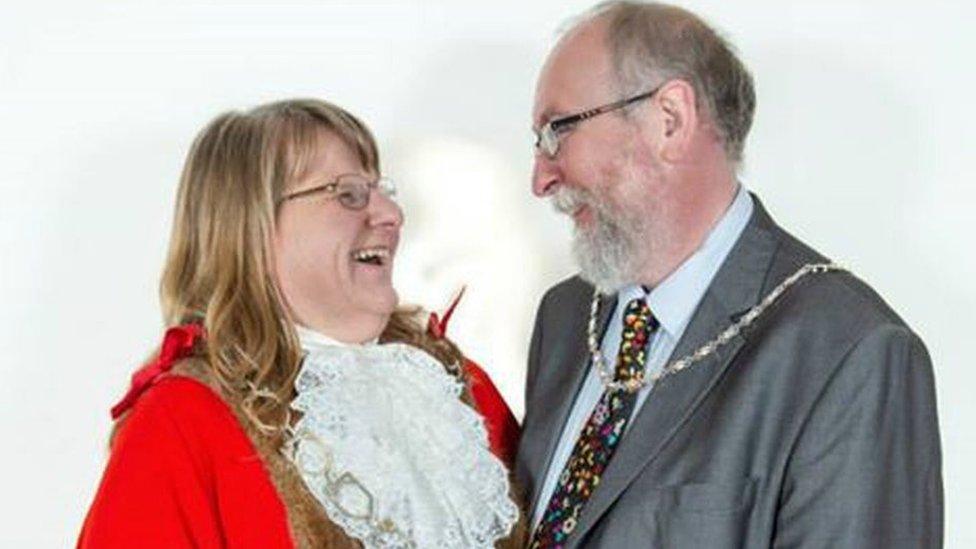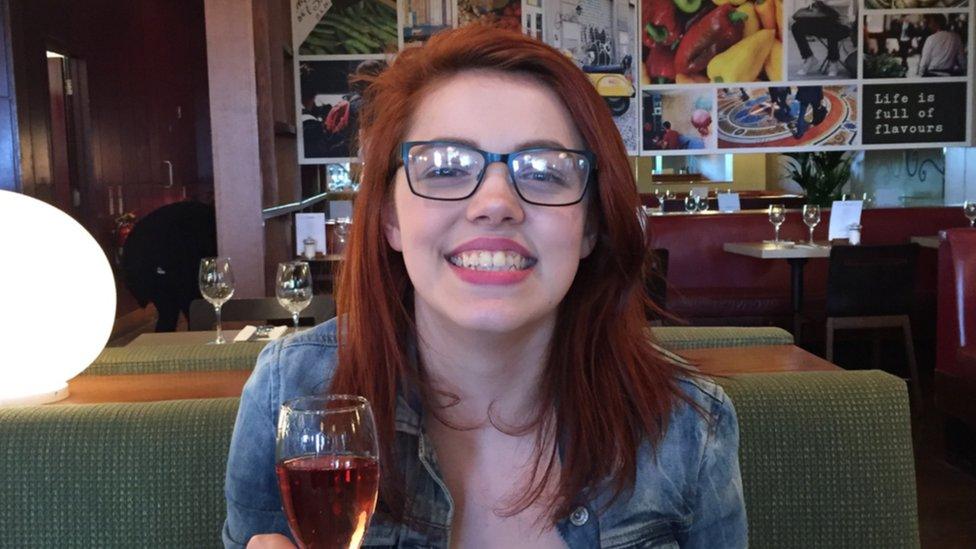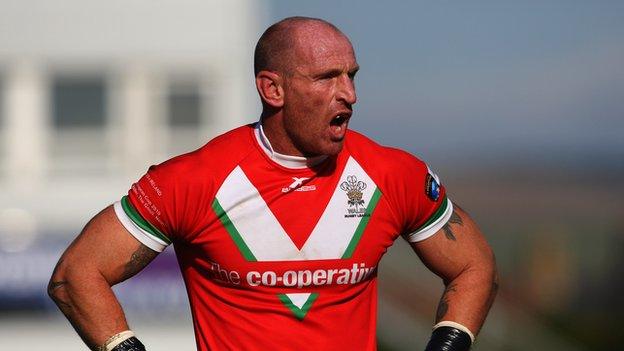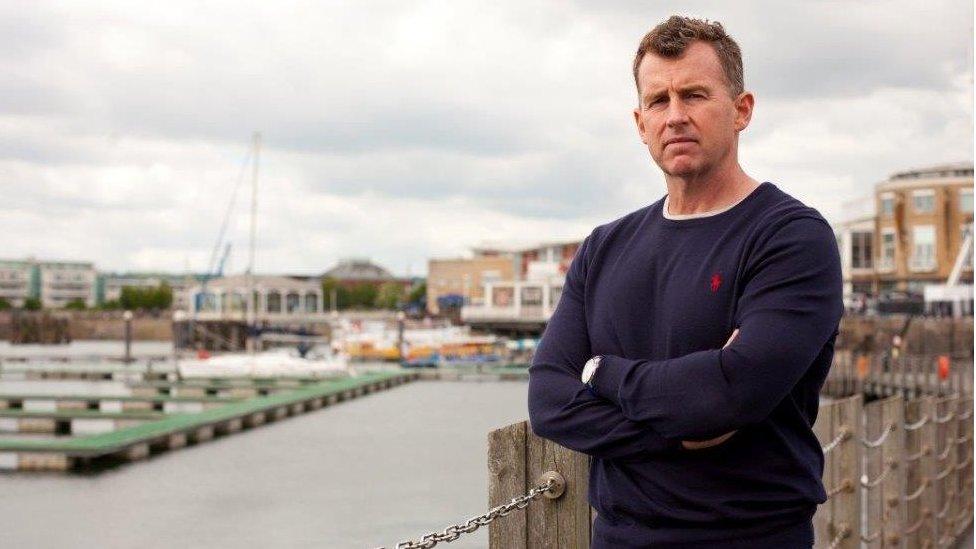Mental health: Two women on fight against stigma
- Published
"He smiled at me - instead of stepping forward, I stepped back"
If it was not for the smile of a familiar bus driver, Sue Northcott believes she would not be alive today.
Moments earlier she had been standing by the side of a road preparing to end her own life.
With a husband and nine-month-old baby at home, a stressful job and in a "void" of depression, she had decided to kill herself.
Mrs Northcott, from Pontardawe, Neath Port Talbot, had chosen not to leave a suicide note in the hope her death would be interpreted as a tragic accident.
"I decided [my baby] would better off without me... I would just drag her down," she said.
So she stood by the side of the road, waiting for the right moment: "I'd worked out the best spot to do it. A bus came hurtling down the road.
"I was just about to step out but I looked up and it was a driver I'd been on the bus with many, many times before and he smiled at me.
"So instead of stepping forward I stepped back. The bus went past and I burst into tears."
That moment, 22 years ago, was the catalyst for Mrs Northcott finally seeking help for the anxiety and depression that had blighted her life for as long as she could remember.
Always an anxious child, by the end of primary school she was self harming and became adept at hiding her feelings from others: "It just got worse and worse as I got older really.
"It was like being in complete blackness... like a void.
"I thought if I spoke to someone about it I would be admitting to not being who I was pretending to be and that everyone would hate me."
So on that serendipitous day, she went straight to her GP and for the first time admitted there was a problem: "I couldn't hide anymore."
Then she had to face her family and tell them about her suicide attempt: "The worst thing of all was telling them.
"They were absolutely appalled. They really felt they'd let me down and that wasn't the case at all, I was just really good at hiding it."

Sue Northcott used her position of mayor to "come out" about her mental health in an open letter
She was eventually diagnosed with anxiety and while life still presents its ups and downs, she said the condition was now "managed better".
Mrs Northcott went on to become her town's mayor and put her name to an open letter in her parish magazine about her experience.
"Everyone who mentioned it was really positive," she said. "An awful lot said: 'Me too. I feel like that as well'."
She still believes there is a lack of education surrounding mental health and now, as well as being a town councillor, she campaigns with Time to Change Wales, external to end the stigma.
"[People have said] 'What have you got to be depressed about?' But unfortunately that's not the way mental health conditions work.
"Quite often people from the older generation, and there are others as well, don't understand why we want to talk about it.
"In the past it was kept under wraps and people had the idea that mental health problems didn't exist. We know now that they did, they were just very well hidden."
She is concerned about people being stigmatised at work: "Managers in some companies will say: 'It's the mental health card' [or call it] 'the new back pain'."

Beth Elliott lives in Cardiff and is a 'champion' for Time to Change Wales
Beth Elliott, 22, came to Cardiff to study as an undergraduate. She was diagnosed with post traumatic stress disorder, external and borderline personality disorder, external after leaving a violent relationship.
"It's a bit like you've got the world and then you're in this bubble. You can see everyone and everyone can see you but you're detached from it," she explained.
She said after "massively underestimating" the stress of university she "crashed" and was self harming, leaving scars on her legs.
On one occasion she was at a supermarket and her scars drew comments from another shopper.
"I was wearing shorts. A little girl was looking and said to her mummy: 'Why does that girl have marks on her legs?' The mum replied: 'She's one of those people who do it because she wants attention but we won't give it to her because that's what she wants'.
"I know it sounds really bad when you say it out loud. People don't understand or don't want to understand."
Another time she recalled being in hospital following a suicide attempt when a member of staff said to her: "I wish people like you would either do it properly or not at all as it's a waste of our resources and both our time."
"There's always going to be those sort of people in the world who don't want to understand and are so set in their ways," she said.
"They think mental health isn't a thing."
Despite these experiences she thinks the situation is improving: "15 years ago if you said mental health people would say 'don't say that, it's a bad word'.
"We watch the Pride of Britain awards every year and hear heroic stories but you don't have to be that sort of hero to save someone's life."
Mrs Northcott agrees: "I've found the best thing is to have just a normal conversation. If somebody wants to talk to you just listen. Don't worry about what you're saying, just let them know they can speak."
If you are affected by any issues raised in this piece, help and support is available. Samaritans Cymru can be contacted 24 hours a day, seven days a week, on 116 123 (English) and 0808 164 0123 (Welsh)
- Published12 February 2016

- Attribution
- Published12 September 2014

- Published23 July 2017
